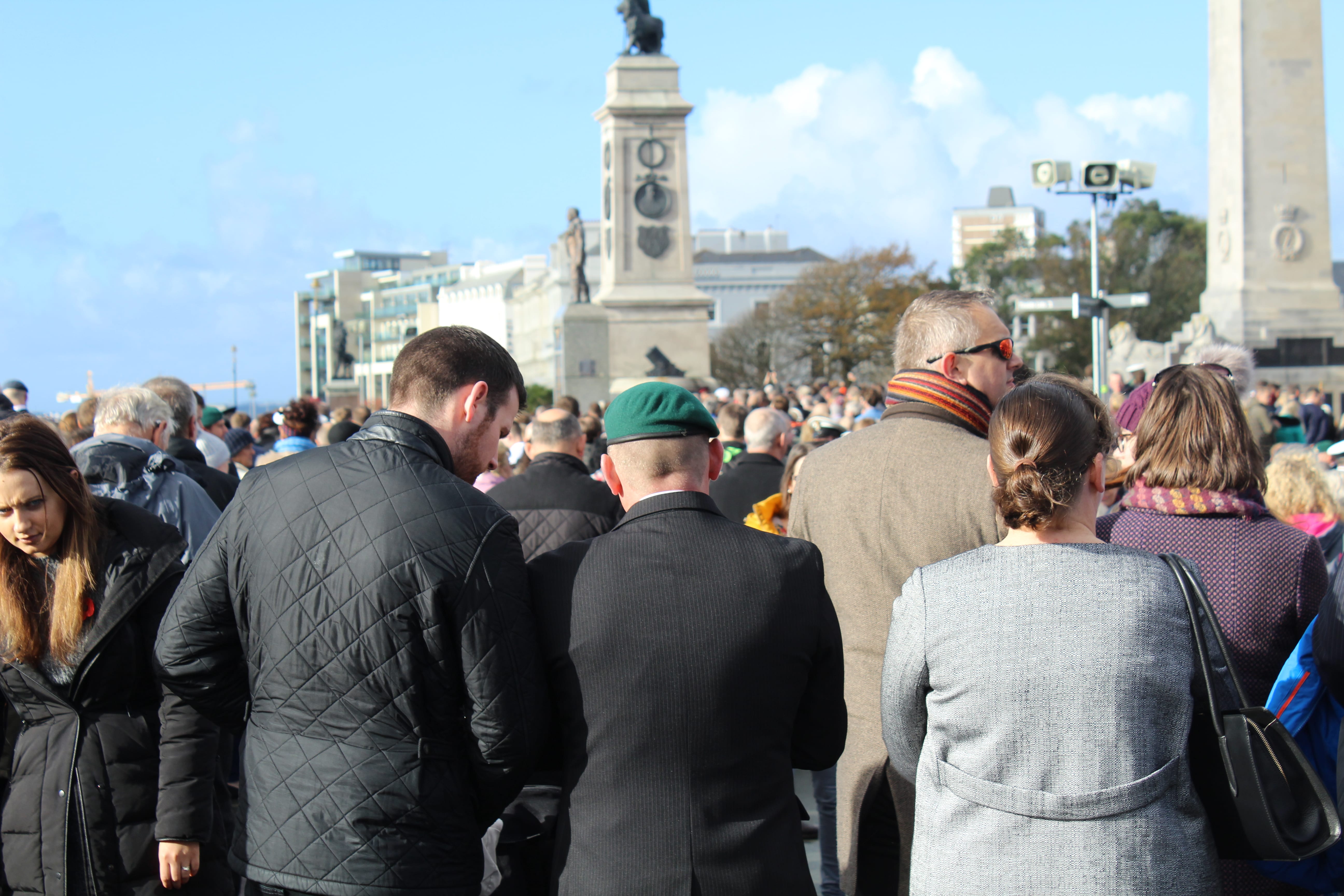Remembrance Sunday
On this day 100 years ago, the guns across western Europe fell silent for the final time. Germany surrendered and the ‘war to end all wars’ was finally over. And thus the signing of the armistice became a catalyst for remembrance of those who had lost their lives in that dreadful war.
However, a century on, Armistice Day has become absorbed within the likes of Remembrance Day in an effort to remember those who have fallen in not just the First World War, but in every war since. Hence, every 11th of November, thousands migrate towards their local cenotaph and, usually adorned with a poppy, take a minute out of their day to silently mourn those who paid the ultimate price.
Today was no exception, on the walk up to Plymouth Hoe I couldn’t help but notice the shear variety of people. All from entirely different walks of life and demographics who share the opportunity to pay some form of tribute in unison. Many know or are related to individuals currently serving in the armed forces, though many do not.
The minute’s silence was commenced with the firing of a canon, the 60 seconds of reflection was then concluded with the sound of the bugle call. The whole procession was, aside from the distant sound of gulls and the wind, silent and tranquil. After this, the crowd watched as ceremonial wreaths were laid down at the cenotaph by different branches of the armed forces, representatives of communities and charities like the Royal British Legion. After a while, the crowd began to disperse and break away – thus ending this years Remembrance Day.
A Fading Message and Growing Divisions
The First World War is a near faded chapter of the public consciousness, soon to be confined to the history books. And whilst we still have an abundance of those who experienced the Second World War as it occurred, these days are inevitably numbered.
Since these two conflicts the UK has fought in various wars, however with the the joint US/ UK invasion of Iraq back in 2003, the British public’s attitudes towards war have soured any attempt to involve ourselves in the affairs of another state.
The premise of Iraq War was that of stopping Dictator Saddam Hussein, the likes of which was alleged to have been harbouring WMDs. However, when this was discovered false and the occupation of Iraq proved to be an altogether more problematic situation in itself, many flocked towards supporting anti-war movements.
An example of Blair’s intervention in Iraq is the growing sense of division of the poppy symbol. On the one side there are those who have since become opposed towards wearing red poppies due to it’s supposed misappropriation. One vocal member of the opposition towards poppies includes Harry Leslie Smith, a 95 year-old WW2 veteran and active Twitter user, the likes of which attributes the wearing of poppies to modern day politicians who “sell dubious wars” and that the original message the poppy and remembrance has been “hijacked“.
Additionally, there are organisations established to respect the war dead but in a different way, namely that of the white poppy movement. Brought about by the Peace Pledge Movement (PPU) back in 1936, the white poppy has become a pacifist symbol of remembrance; with the PPU’s website stating:
“There are three elements to the meaning of white poppies: they represent remembrance for all victims of war, a commitment to peace and a challenge to attempts to glamorise or celebrate war.”
In addition to this, many who have since turned away from the red poppy declare that ‘poppy fascism’ is to blame for their alienation. The phenomena revolves around the idea that wearing a red poppy is no longer a personal conviction but a societal expectation. Over the years several high profile people have been embroiled in this debate, the term itself was coined by Channel 4 presenter Jon Snow who refused to go on air wearing the symbol.
It would definitely seem that the idea of remembrance is increasingly becoming that of a partisan issue, with the general consensus being if you support the red poppy appeal then you support the military whilst support of the white poppies has become somewhat synonymous of pacifistic criticisms of war and any form of militarised intervention. Such begs the question as to what is remembrance becoming for us, is it a show of remorse for the fallen soldiers or an excuse to glorify and deify wars and those who partake.
I believe that, in a way, it’s a privilege to be able to have this debate in lieu of periods of perpetual war. Since the end of the Second World War the frequency and scale of war has declined dramatically (though this can definitely be attributed towards the nuclear deterrent), so it’s preferable to argue about how we remember the war dead rather than add to it.




